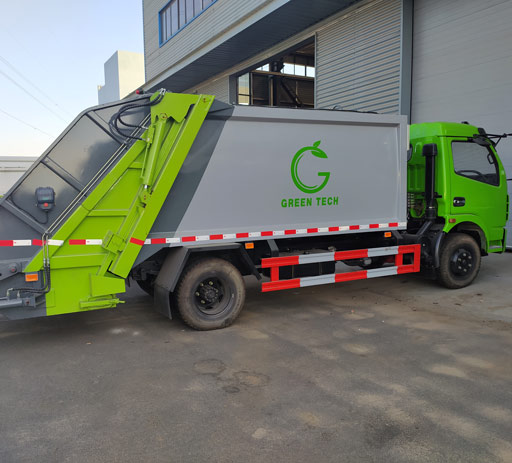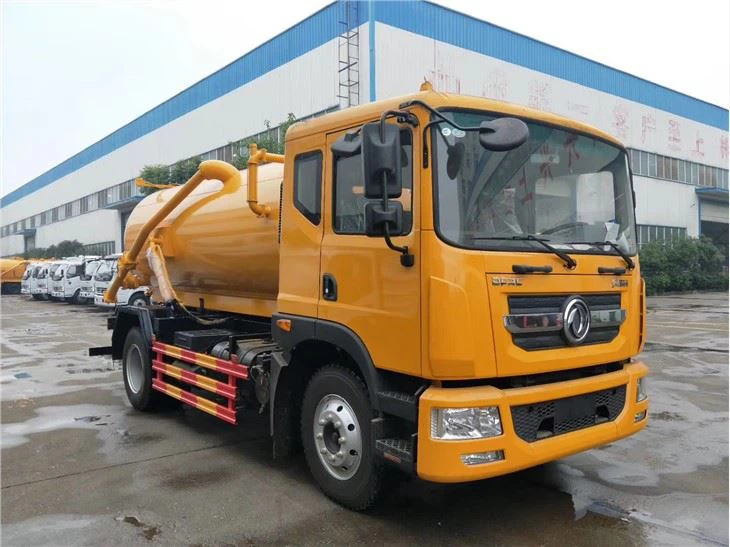Waste Management: The Role of Garbage Trucks in Effective Waste Disposal

Waste management is a crucial aspect of maintaining cleanliness and sustainability in our communities. Among the various elements of waste management, garbage trucks play a significant role in the collection and transportation of waste materials. This article delves into the mechanics of garbage trucks, their types, advancements in technology, and best practices for effective waste management. In addition, practical examples and tips will be provided to help individuals and communities optimize their waste disposal practices.
The Importance of Waste Management
Understanding the importance of waste management is fundamental to appreciating the role of garbage trucks. Waste management refers to the processes of collecting, transporting, processing, recycling, and disposing of waste materials. Effective waste management has several benefits:
Environmental Protection
Proper waste management reduces pollution, conserves natural resources, and supports ecosystems. By effectively managing waste, communities mitigate the risks associated with hazardous materials and ensure cleaner surroundings.
Public Health Safety
Improper waste disposal can lead to serious health issues. Waste management practices help prevent the spread of diseases caused by unsightly and unsanitary waste accumulation, thus protecting the wellbeing of residents.
Economic Benefits
Efficient waste management can lead to reduced disposal costs, increased recycling revenues, and job creation within waste management sectors. A well-managed waste system can foster economic growth while promoting environmental sustainability.
Types of Garbage Trucks
Garbage trucks come in various forms, each designed for specific functions and waste types. Understanding these different types offers insight into their operational efficiency.
Front Loaders
Front loader garbage trucks are known for their efficiency in urban environments. Equipped with large containers in the front, these trucks can quickly dump waste into their compartments from commercial bins.
Rear Loaders

Rear loader trucks are usually seen in residential areas. With a large rear entrance, these trucks are designed for manual collection, making them ideal for neighborhoods with curbside waste collection.
Side Loaders
Side load garbage trucks can either be operated manually or automatically. They are equipped with robotic arms that lift and empty bins placed on the side of the truck, enhancing operational efficiency.
Compacting Trucks

These trucks compress waste in their compartments, allowing them to carry larger volumes of waste. Compaction improves transportation efficiency, reducing the number of trips required to a landfill.
The Technology Behind Garbage Trucks
Smart Garbage Trucks
Technological advancements have transformed the traditional garbage truck into a smart system. Smart garbage trucks are equipped with sensors that optimize routes, monitor load levels, and track location, leading to improved efficiency and reduced operational costs.
GPS and Route Optimization
Many municipalities employ GPS technology to allow garbage trucks to follow optimized routes. This decreases fuel consumption and minimizes the time spent on waste collection routes.

Automated Collection Systems
Automation plays a growing role in garbage collection. Automated trucks can lift containers without human interaction, increasing safety for workers and streamlining waste collection processes.
Best Practices for Effective Waste Management
Segregation of Waste
One of the primary practices for effective waste management is waste segregation. Encouraging households and businesses to separate recyclables, compostables, and general waste improves recycling rates and reduces landfill use.
Regular Collection Schedules
Establishing a consistent collection schedule ensures that waste does not accumulate, which is vital for maintaining cleanliness and public health. Municipalities should widely communicate collection days and any changes in schedule.
Community Engagement and Education
Engaging the community in waste management initiatives promotes environmentally responsible behaviors. Educational programs can teach residents about recycling, composting, and proper waste disposal methods.
Challenges in Waste Management
Overflowing Landfills
As urbanization increases, landfills are becoming overcrowded. This necessitates urgent measures for waste reduction and improved recycling programs.
Illegal Dumping
Illegal dumping poses significant challenges to waste management efforts. Strict laws, enforcement actions, and community awareness campaigns must be established to combat this issue.
Funding and Resource Allocation
Lack of funding for waste management services can limit the efficacy of garbage collection systems. Government investment and proper resource allocation are crucial for developing and maintaining efficient waste management infrastructures.
Examples of Successful Waste Management Initiatives
Zero Waste Programs
Several municipalities around the world have adopted zero waste initiatives aimed at diverting waste from landfills. San Francisco, for example, has implemented strict recycling and composting programs that allow it to divert over 80% of its waste.
Community Recycling Programs
Barriers can be lowered through community-driven recycling programs. Initiatives that set up local recycling stations increase community participation and awareness. Programs in cities like Toronto have seen a significant increase in diversion rates following community efforts.
The Future of Garbage Trucks and Waste Management
Electric and Alternative Fuel Trucks
Adopting electric or hybrid garbage trucks will decrease emissions and reliance on fossil fuels. Cities such as Los Angeles are beginning to integrate electric vehicle models into their fleets to contribute to greener waste management.
Enhanced Recycling Technologies
Advancements in recycling technologies will help communities process waste more effectively. Facilities that can sort materials more efficiently will enhance recycling rates and reduce contamination.
FAQs About Waste Management and Garbage Trucks
What types of waste can garbage trucks collect?
Garbage trucks can collect various waste types, including household trash, recyclables (plastic, glass, paper), compostable materials (food waste), and construction debris, depending on local regulations.
How often should garbage trucks pick up waste?
Pickup frequency varies by community but typically occurs once a week for residential areas. Larger commercial establishments may require more frequent pickups.
Can I influence my local garbage collection schedule?
Community members can often voice their concerns or preferences through local government meetings or through waste management advocacy groups. Public feedback can lead to more suitable collection schedules.
How can I reduce waste in my household?
To reduce household waste, practice recycling, compost organic materials, purchase products with minimal packaging, and buy in bulk whenever possible.
Are there any technologies that help improve garbage collection?
Yes, technologies such as GPS for route optimization, automated collection systems, and smart bins that signal when they are full can significantly improve efficiency in garbage collection.
What is the role of public awareness in waste management?
Public awareness plays a crucial role in waste management. Educating communities about the impacts of waste and encouraging responsible disposal practices can lead to increased participation in recycling and waste reduction initiatives.
